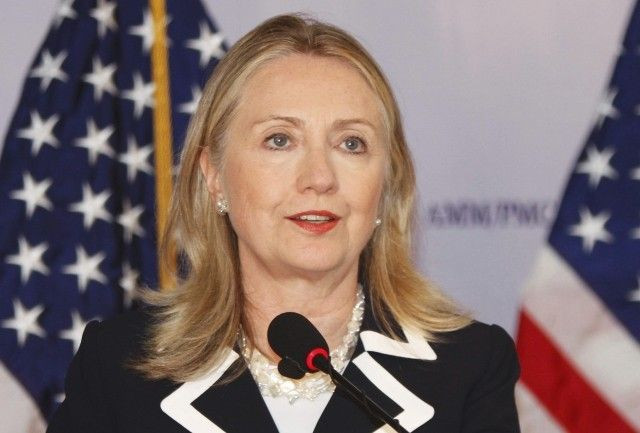ASEAN Fails To Reach South China Sea Accord; Indonesia Slams Members, While U.S. And China Downplay Friction

The Association of Southeast Asian Nations (ASEAN) failed to reach a common ground over the territorial tensions in South China Sea, resulting from the disagreements among the member nations, which member Indonesia slammed as utterly irresponsible.
Foreign ministers from 10 member nations had deliberated all week to finalize its position on the maritime tensions in the resource-rich South China Sea, but emerged from the ASEAN Regional Forum (ARF) Thursday in the Cambodian capital Phnom Penh without reaching an agreement because Philippines and Vietnam, along with Brunei and Malaysia, claim overlapping parts of the South China Sea.
China, on the other hand, lays claim to almost the entire South China Sea, including what is recognized by the U.N. as the Exclusive Economic Zone of other neighbors.
The ASEAN members were set to seek China's agreement on the newly adopted key elements to ensure discipline in the South China Sea.
The Philippines, which was involved in a dispute with China recently over the ownership of the Scarborough Shoal, has been seeking ASEAN's support in pressuring Beijing to accept the code of conduct.
While addressing the ARF, the Philippine Foreign Minister Albert del Rosario, said that China's behavior in the region accounted to gross violations of international conventions and was part and parcel of (China's) creeping imposition of its claim over the entire South China Sea.
Indonesian Foreign Minister Marty Natalegawa criticized the inability of the member nations to reach an agreement.
Whenever there are incidents, that's actually the moment that we should reinforce our efforts, not be grinding to a halt, said Natalegawa, as reported by the Jakarta Globe. This time last year we had a similar problem between Cambodia and Thailand - it was a more direct intra-ASEAN conflict, but it was not impossible to find a solution within ASEAN. And in this instance it's, I find it perplexing, and to be candid and honest, really, really disappointing.
However, ASEAN Secretary-General Surin Pitsuwan downplayed the failure as a hiccup, adding that efforts will be on to address the issue.
We thought we could get one united position on everything. That's the expectation, that's the hope, he said.
China and the U.S. on Thursday pledged for better ties, de-emphasizing the friction between nations over South China Sea and Chinese concerns over Washington's stance that it would act to counterbalance China's growing influence in the South China Sea as part of its foreign policy known as pivot to Asia, developed in the aftermath of the wars in Iraq and Afghanistan.
U.S. Secretary of State Hillary Clinton who met with Chinese Foreign Minister Yang Jiechi on the sidelines of the ASEAN conference, said the the United States and China not only can, but will work together in Asia, said media reports.
However, while speaking to reporters, Clinton expressed concern over worrisome instances of economic coercion and the problematic use of military and government vessels in connection with disputes among fishermen, referring to the recent standoff between Manila and Beijing.
Although China, Taiwan, Vietnam and the Philippines have long been involved in the South China Sea dispute, the recent standoff was triggered on April 10 when two Chinese ships thwarted the Philippines' effort to arrest several Chinese fishermen accused of illegally entering and poaching near the Scarborough area.
Washington played a part in escalating the tensions by undertaking a military drill in April with nearly 7,000 U.S. and Philippine forces, which led to a top military publication in China warning that the U.S. might be risking an armed confrontation.
Yang said China hoped the U.S. will respect the interests and concern of China and other countries in the region, according to a Chinese Foreign Ministry statement.
The U.S. officials said that Yang appeared willing to participate in a dialogue on a code of conduct that the U.S. and ASEAN had called for during the talks with Clinton.
Hours before the high-level talks between both the nations began, China's ruling Communist Party mouthpiece the People's Daily, slammed Clinton for implicitly criticizing China by praising Mongolia's politics as a democratic model for Asia.
Who is the United States to haughtily appraise Asia's democratic position? asked the newspaper, referring to Clinton's comments, while on a visit to capital Ulan Bator, that Mongolia stands in stark contrast to those governments that continue to resist reforms -- that work around the clock to restrict people's access to ideas and information, to imprison them for expressing their views, to usurp the rights of citizens to choose their leaders, to govern without accountability, to corrupt the economic progress of the country and take the riches unto themselves.
The newspaper claimed that the U.S. had a hidden agenda in pushing democracy in Asia.
In reality, lauding democracy and holding the flag for human rights is an important part of the U.S. 'return to Asia' strategy, it said.
© Copyright IBTimes 2025. All rights reserved.






















